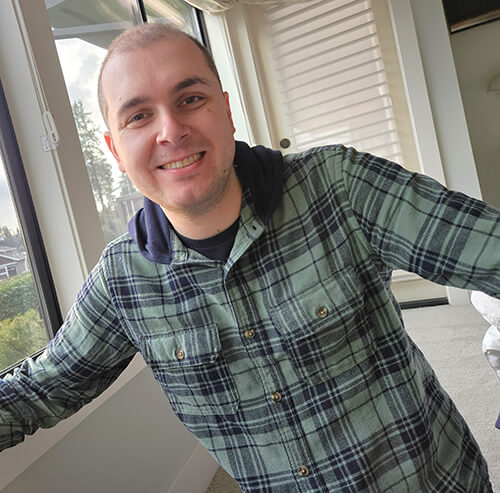Speaking Up As an Autistic Mentor
May 6, 2024
 In this post we hear from a young adult on the autism spectrum about growing into a mentorship role. You can hear more autistic people discuss their experiences in our most recent Conversations About Autism: Autistic Voices video.
In this post we hear from a young adult on the autism spectrum about growing into a mentorship role. You can hear more autistic people discuss their experiences in our most recent Conversations About Autism: Autistic Voices video.
Being autistic, I have always been a very blunt person. Back when I was a kid, I often blurted out straightforward, even disrespectful comments when meeting others, such as, "Hello, shorty!" or, "Whoa, she’s so fat!" This problem was at its worst in high school when I got the idea that making dumb jokes at others’ expense would get me noticed more. I needed to be taught over time how to think before I speak, and now I have better control over my inappropriate outbursts.
This is a common problem with many on the autism spectrum, and some may continue to struggle significantly with it well into adulthood. Once, I had an autistic woman casually say to me that she was on her period, and I responded by sarcastically saying, “Hey, thanks. I really needed to hear that.” Yet she thought I was being serious, so said to me, “You’re welcome.” This sort of thinking amongst autistic individuals is due to two things:
- The lack of a filter between what’s in their head and what comes out of their mouth.
- An inability to identify the verbal and facial cues of others.
These points disprove a common stereotype about autistics, that they hardly, if ever, speak. In my experience meeting others on the spectrum, it’s usually the opposite. Autistic people often talk constantly, sometimes not knowing when to stop. Even I was like this in middle school and high school.
As detrimental as extreme bluntness can be for the social life of someone with autism, those who manage to get a handle on it, like me, can turn the bluntness into a strength. I go to a small church where after the Sunday sermon, everyone breaks into smaller discussion groups. We discuss the sermon, as well as more focused topics about the vision of our church. We are asked to consider differences across cultures to make those of any ethnic background feel welcome. This was where I felt compelled to speak up about how any church also must be mindful of welcoming those with disabilities, which meant telling the hard truth about the experiences I’ve had.
While on a retreat, our church talked about social differences across different cultural households, which included the concept of interpreting facial expressions. Some people in different countries have developed more of a skill in “reading the room” while others are more direct in how they speak. I shared with everyone how many on the autism spectrum can’t read facial expressions well at all, let alone express them on their own faces.
Another point of emphasis often addressed within our church, which is a shared value in all other Christian churches I’ve been to, is discipleship. That means quickly building relationships with new people, having somebody who’s mentoring you, and having somebody you’re mentoring. I’ve shared with my fellow church members how much of an insecurity this concept is for me, how due to my differences, I always feel like the least mature one in every room I enter, even a room full of teenagers. That means I fear if I ever attempt to mentor anyone, I would only hinder their growth.
When sharing about these things, and the difficulty of being part of groups as someone with autism, other church members have thanked me for my transparency. The pastor has also told me multiple times how much I’ve inspired him, saying I’ve given him a greater understanding of the disability community. So hearing this praise from others about how I haven’t been afraid to share exactly what’s on my mind gives me validation that there is potential for me as a mentor.
A much greater validation I’ve gotten lately has been watching my 2½-year-old niece grow up. Since she was born, I’ve had some conflicts with my sister and parents over the improper things I’ve said and done while around my niece. Yet the mistakes only served to round me out like a chisel turning a slab of marble into a statue, and now I’m confident in saying that I’ve gotten so much better at interacting with my niece appropriately. She likewise seems to genuinely have fun playing with me, while the times my behavior by my sister or parents is corrected have been significantly fewer.
Anyone on the spectrum will continue running into insecurities, but it’s not impossible to overcome those setbacks to leave a lasting beneficial impact on others. While I do still struggle in social settings and run into anxiety attacks pretty often, the validation I’ve gotten from my peers about how my openness inspires them gives me hope. While arriving at the role of mentorship is never easy for anyone, a healthy role model for the new generation can come from anywhere, including the autism community
— Trevor Pacelli
Trevor Pacelli is a young adult on the autism spectrum. He works for his family’s publishing company and is the author of five books about disabilities and autism and the illustrator of a children’s book about autism. His latest book is What Movies Can Teach Us About Bullying.
You can hear more autistic people discuss their experiences in our most recent Conversations About Autism: Autistic Voices video.